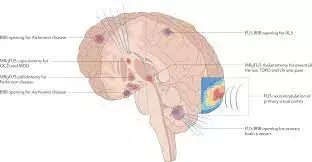- Home
- Medical news & Guidelines
- Anesthesiology
- Cardiology and CTVS
- Critical Care
- Dentistry
- Dermatology
- Diabetes and Endocrinology
- ENT
- Gastroenterology
- Medicine
- Nephrology
- Neurology
- Obstretics-Gynaecology
- Oncology
- Ophthalmology
- Orthopaedics
- Pediatrics-Neonatology
- Psychiatry
- Pulmonology
- Radiology
- Surgery
- Urology
- Laboratory Medicine
- Diet
- Nursing
- Paramedical
- Physiotherapy
- Health news
- Fact Check
- Bone Health Fact Check
- Brain Health Fact Check
- Cancer Related Fact Check
- Child Care Fact Check
- Dental and oral health fact check
- Diabetes and metabolic health fact check
- Diet and Nutrition Fact Check
- Eye and ENT Care Fact Check
- Fitness fact check
- Gut health fact check
- Heart health fact check
- Kidney health fact check
- Medical education fact check
- Men's health fact check
- Respiratory fact check
- Skin and hair care fact check
- Vaccine and Immunization fact check
- Women's health fact check
- AYUSH
- State News
- Andaman and Nicobar Islands
- Andhra Pradesh
- Arunachal Pradesh
- Assam
- Bihar
- Chandigarh
- Chattisgarh
- Dadra and Nagar Haveli
- Daman and Diu
- Delhi
- Goa
- Gujarat
- Haryana
- Himachal Pradesh
- Jammu & Kashmir
- Jharkhand
- Karnataka
- Kerala
- Ladakh
- Lakshadweep
- Madhya Pradesh
- Maharashtra
- Manipur
- Meghalaya
- Mizoram
- Nagaland
- Odisha
- Puducherry
- Punjab
- Rajasthan
- Sikkim
- Tamil Nadu
- Telangana
- Tripura
- Uttar Pradesh
- Uttrakhand
- West Bengal
- Medical Education
- Industry
Staged bilateral FUS-STN safely improves motor features in Parkinsonism: JAMA

Staged bilateral FUS-STN safely improves motor features in Parkinsonism suggests a study published in the JAMA Neurology.
Unilateral magnetic resonance imaging (MRI)–guided focused ultrasound subthalamotomy (FUS-STN) improves cardinal motor features among patients with asymmetrical Parkinson's disease (PD). The feasibility of bilateral FUS-STN is as yet unexplored. A study was done to assess the safety and effectiveness of staged bilateral FUS-STN to treat Parkinson's disease. This prospective, open-label, case series study was conducted between June 18, 2019, and November 7, 2023, at HM-CINAC, Puerta del Sur University Hospital, Madrid, Spain, and included 6 patients with Parkinson's disease who had been treated with unilateral FUS-STN contralateral to their most affected body side and whose parkinsonism on the untreated side had progressed and was not optimally controlled with medication.
Primary outcomes were assessed 6 months after the second treatment and included safety (incidence and severity of adverse events after the second treatment) and effectiveness in terms of motor change (measured with the Movement Disorders Society Unified Parkinson’s Disease Rating Scale part III [MDS-UPDRS III]) in the off-medication state (ie, after at least 12 hours of antiparkinsonian drug withdrawal) compared with baseline (ie, prior to the first side ablation). Secondary outcomes included motor change in patients in the on-medication state (ie, after usual antiparkinsonian medication intake), motor complications (measured with the MDS-UPDRS IV), daily living activities (measured with the MDS-UPDRS I-II), quality of life (measured with the 39-item Parkinson’s Disease Questionnaire), change in dopaminergic treatment, patient’s global impression of change (measured with the Global Impression of Change [PGI-C] scale), and long-term (24-month) follow-up. Results: Of 45 patients previously treated with unilateral FUS-STN, 7 were lost to follow-up, and 4 were excluded due to adverse events. Of the remaining 34 patients, 6 (median age at first FUS-STN, 52.6 years [IQR, 49.0-57.3 years]; 3 women [50%]) experienced progression of parkinsonism on the untreated body side and were included. At the time of the first FUS-STN, patients’ median duration of disease was 5.7 years (IQR, 4.7-7.3 years).
The median time between procedures was 3.2 years (IQR, 1.9-3.5 years). After the second FUS-STN, 4 patients presented with contralateral choreic dyskinesia, which resolved by 3 months. Four patients developed speech disturbances, which gradually improved but remained in a mild form for 2 patients at 6 months; 1 patient experienced mild imbalance and dysphagia during the first week after treatment, which subsided by 3 months. No behavioural or cognitive disturbances were found on neuropsychological testing. For patients in the off-medication state, MDS-UPDRS III scores improved by 52.6% between baseline and 6 months after the second FUS-STN (from 37.5 [IQR, 34.2-40.0] to 20.5 [IQR, 8.7-24.0]; median difference, 23.0 [95% CI, 7.0-33.7]; P = .03). The second treated side improved by 64.3% (MDS-UPDRS III score, 17.0 [IQR, 16.0-19.5] prior to the second treatment vs 5.5 [IQR, 3.0-10.2]; median difference, 9.5 [95% CI, 3.2-17.7]; P = .02). After the second procedure, all self-reported PGI-C scores were positive. Findings of this pilot study suggest that staged bilateral FUS-STN was safe and effective for the treatment of PD, although mild but persistent speech-related adverse events were observed among a small number of patients.
Reference:
Martínez-Fernández R, Natera-Villalba E, Rodríguez-Rojas R, et al. Staged Bilateral MRI-Guided Focused Ultrasound Subthalamotomy for Parkinson Disease. JAMA Neurol. Published online May 13, 2024. doi:10.1001/jamaneurol.2024.1220
Dr. Shravani Dali has completed her BDS from Pravara institute of medical sciences, loni. Following which she extensively worked in the healthcare sector for 2+ years. She has been actively involved in writing blogs in field of health and wellness. Currently she is pursuing her Masters of public health-health administration from Tata institute of social sciences. She can be contacted at editorial@medicaldialogues.in.
Dr Kamal Kant Kohli-MBBS, DTCD- a chest specialist with more than 30 years of practice and a flair for writing clinical articles, Dr Kamal Kant Kohli joined Medical Dialogues as a Chief Editor of Medical News. Besides writing articles, as an editor, he proofreads and verifies all the medical content published on Medical Dialogues including those coming from journals, studies,medical conferences,guidelines etc. Email: drkohli@medicaldialogues.in. Contact no. 011-43720751


